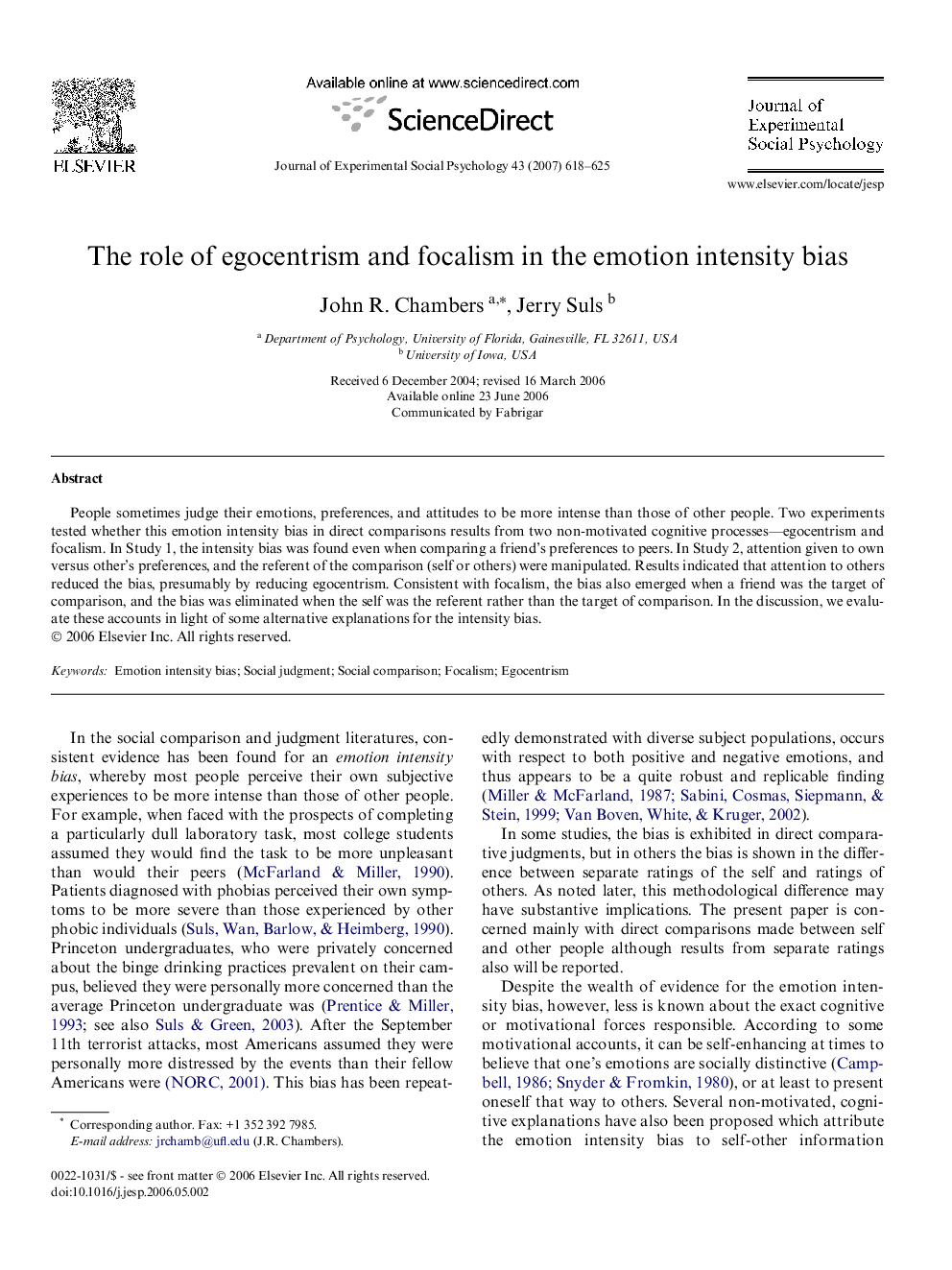| Article ID | Journal | Published Year | Pages | File Type |
|---|---|---|---|---|
| 949078 | Journal of Experimental Social Psychology | 2007 | 8 Pages |
People sometimes judge their emotions, preferences, and attitudes to be more intense than those of other people. Two experiments tested whether this emotion intensity bias in direct comparisons results from two non-motivated cognitive processes—egocentrism and focalism. In Study 1, the intensity bias was found even when comparing a friend’s preferences to peers. In Study 2, attention given to own versus other’s preferences, and the referent of the comparison (self or others) were manipulated. Results indicated that attention to others reduced the bias, presumably by reducing egocentrism. Consistent with focalism, the bias also emerged when a friend was the target of comparison, and the bias was eliminated when the self was the referent rather than the target of comparison. In the discussion, we evaluate these accounts in light of some alternative explanations for the intensity bias.
